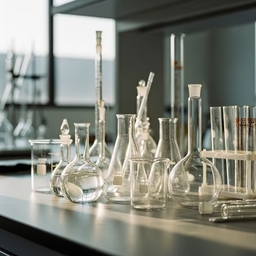In laboratory environments, precision and efficiency are key. One essential process that scientists rely on for separating solids from liquids is laboratory vacuum filtration. This method is faster and more efficient than traditional filtration, making it ideal for research, chemical synthesis, and analytical work. Brands like foxxlifesciences have revolutionized this process by designing high-quality vacuum filtration systems for modern laboratories.

Email Us : sales@foxxlifesciences.com
What is Laboratory Vacuum Filtration?
Laboratory vacuum filtration is a separation technique that uses a vacuum to draw a liquid through a filter, leaving behind solid residues. It’s commonly used when the mixture contains small particles or when a faster filtration process is required.
How Does Laboratory Vacuum Filtration Work?
The process involves creating a pressure difference across the filter. When a vacuum is applied to the receiving flask, it pulls the liquid through the filter paper placed in the funnel, separating solids and liquids efficiently. This technique saves time and improves clarity compared to gravity filtration.
Components of a Vacuum Filtration Setup
A standard laboratory vacuum filtration setup includes the following key parts:
4.1 Filter Flask
Also called a side-arm or vacuum flask, this thick-walled container withstands pressure changes during vacuum application.
4.2 Buchner Funnel
The Buchner funnel holds the filter paper and directs the filtrate into the flask below.
4.3 Filter Paper
Placed inside the funnel, this paper traps solid particles while allowing the liquid to pass through.
4.4 Vacuum Pump
The pump creates the necessary suction force that accelerates the filtration process.
Principle Behind Vacuum Filtration
The technique operates on the principle of pressure difference. The vacuum reduces pressure inside the flask, while atmospheric pressure pushes the liquid through the filter. This differential speeds up the filtration process without compromising accuracy.
Steps to Perform Vacuum Filtration
-
Assemble the vacuum flask and connect it to the pump.
-
Place the Buchner funnel securely on the flask.
-
Insert the correct size of filter paper and wet it slightly to create a seal.
-
Pour the mixture onto the filter paper.
-
Turn on the vacuum pump and allow the liquid to pass through.
-
Once complete, release the vacuum before removing the funnel.
Types of Vacuum Filtration Systems
7.1 Manual Vacuum Filtration
This system requires manual operation of a pump or aspirator, suitable for smaller lab setups.
7.2 Automated Vacuum Filtration
Automated systems, like those from foxxlifesciences, integrate advanced vacuum control, making them ideal for high-throughput laboratories.
Applications of Laboratory Vacuum Filtration
Vacuum filtration is widely used across multiple scientific fields:
-
Chemical synthesis and purification
-
Microbiological sample preparation
-
Environmental testing
-
Pharmaceutical production
-
Food and beverage quality control
Advantages of Vacuum Filtration in the Lab
-
Speed: Filtration occurs much faster than with gravity methods.
-
Efficiency: Achieves cleaner filtrates with fewer residues.
-
Precision: Ideal for collecting fine particles.
-
Scalability: Suitable for small-scale and industrial applications alike.
Safety Precautions During Vacuum Filtration
Always use a thick-walled flask to avoid implosion. Check glassware for cracks, ensure secure connections, and wear safety goggles. foxxlifesciences provides durable and safety-tested filtration products that meet international laboratory standards.
Tips for Efficient Filtration Results
-
Pre-wet the filter paper to prevent bypass.
-
Maintain steady vacuum pressure.
-
Clean equipment after each use to prevent contamination.
-
Use quality filtration products from trusted brands like foxxlifesciences.
Why Choose foxxlifesciences for Vacuum Filtration Equipment
foxxlifesciences is a leading name in laboratory filtration technology. Their vacuum filtration systems are designed with innovation, durability, and safety in mind. From solvent filtration assemblies to vacuum pumps, foxxlifesciences offers products that ensure accuracy, reliability, and performance for modern research laboratories.
Their filtration setups are crafted using premium materials, ensuring chemical resistance and long-term use — making them the top choice for scientists who value quality and precision.
Conclusion
Laboratory vacuum filtration is a cornerstone of modern laboratory operations. It enables scientists to perform faster, more efficient, and more accurate separations. With trusted suppliers like foxxlifesciences, laboratories can enhance their workflow while ensuring precision and safety. Whether you're working in chemical research, pharmaceuticals, or microbiology, investing in high-quality vacuum filtration equipment is essential for success.
Email Us : sales@foxxlifesciences.com
https://twitter.com/foxxlifescience
https://www.facebook.com/foxxlifesciences
https://www.pinterest.com/foxxlifesciences/
https://www.linkedin.com/company/foxxlifesciences
https://www.youtube.com/user/foxxlifesciences
